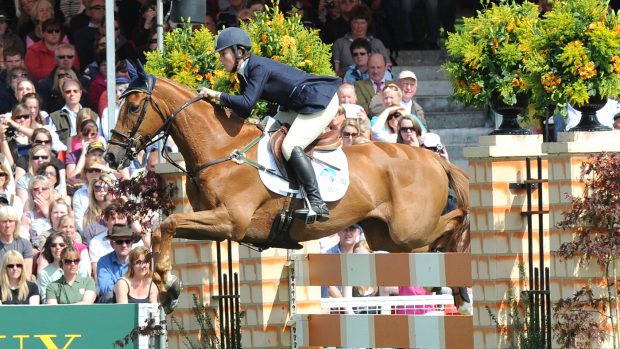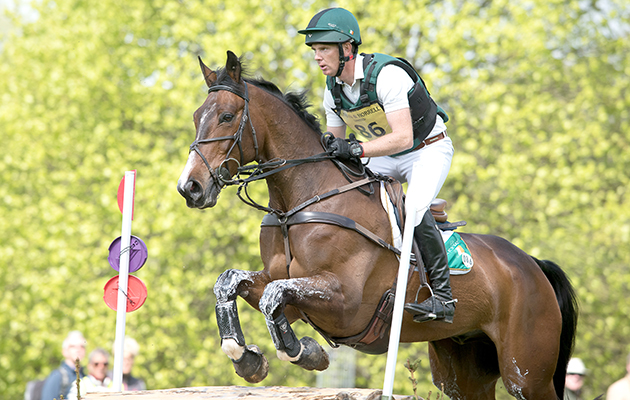Not many riders can boast the sort of intellectual CV this quietly-spoken Irishman does. After a decade as a professional showjumper on the continental circuit, Padraig (pronounced Paw-rigg) McCarthy wanted a change of scene.
“I thought there must be more to life than that,” he says.
So he did a degree in German and economics. He spent time in Switzerland and Germany while studying and carried on dealing horses to fund his continued education.
“Lucy [Wiegersma] came to look at one of the horses, and that’s how he met,” he recalls.
The two of them are now parents of Tomas, born last year.
So how did Padraig go from jumping dealer to Olympic eventer riding Lucy’s former top horse? He’s clearly got talent, that intangible Irish way with horses.
He and Lucy moved in together and set up a business.
“She must have seen something in me,” he says modestly of how he came to pick up the ride on this talented son of Sofix, now 16. “She rode Simon [Porloe, Padraig’s Rio horse] at Malmo and they upturned at the boat.
“It really knocked the horse’s confidence and we weren’t sure he’d ever come back from it. Lucy also had this other really good horse, Mr Chunky, so she suggested I take Simon.
“I had no experience so had to start from novice and decided to go as far as the horse would go.”
I almost laugh. We’re standing in the mix zone, with Padraig having just completed a really smart test on Simon (barring one naughty spook at a pesky photographer) for 46.8 penalties (about 68.8%).
At lunch time on dressage day one, he lies in fourth place.
“He’s like a bumblebee — he shouldn’t be able to fly but he can,” says Padraig.
Soothed by a toddler
How did he change his mindset to start galloping at solid fences, rather than knock-down poles?
“Irish youngsters are used to hunting,” he reasons. “It’s dressage that’s the biggest challenge.”
Padraig counts his biggest personal strength as his ability to put mistakes behind him and move on.
He had a crunching cross-country fall at a corner fence in the arena at the Blair Europeans last year.
That, as with other mistakes is now “old news”.
On the day he was frustrated.
“I was shellshocked and I went back to the lorry,” he says. “And there was this toddler smiling at me and I realised it really wasn’t so important.”
Padraig has not reassessed his priorities, but his attitude has shifted.
He thinks some younger riders could also do with a change in attitude.
“They should learn their trade,” he councils. “In England there are so many privileged youngsters on great horses. But to become a real horseman you need to ride all different types.
“You don’t need money; you need to work for it and get results. Build a good foundation and don’t be afraid of making mistakes. Use them to learn and get better.”





